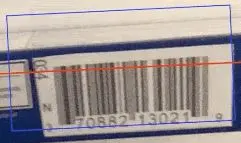valsartan tablet film coated
1 INDICATIONS AND USAGE Valsartan tablets are an angiotensin II receptor blocker (ARB) indicated for: Hypertension , to lower blood pressure in adults and children 6 years and older. Lowering blood pressure reduces the risk of fatal and nonfatal cardiovascular events, primarily strokes and myocardial infarctions ( 1.1 ) Heart failure (NYHA class II-IV) , to reduce hospitalization for heart failure in adults ( 1.2 ) Post-myocardial infarction , for the reduction of cardiovascular mortality in clinically stable patients with left ventricular failure or left ventricular dysfunction following myocardial infarction in adults ( 1.3 ) 1.1 Hypertension Valsartan tablets are indicated for the treatment of hypertension, to lower blood pressure in adults and pediatric patients six years of age and older. Lowering blood pressure reduces the risk of fatal and nonfatal cardiovascular events, primarily strokes and myocardial infarctions. These benefits have been seen in controlled trials of antihypertensive drugs from a wide variety of pharmacologic classes, including the class to which valsartan principally belongs. There are no controlled trials in hypertensive patients demonstrating risk reduction with valsartan tablets. Control of high blood pressure should be part of comprehensive cardiovascular risk management, including, as appropriate, lipid control, diabetes management, antithrombotic therapy, smoking cessation, exercise, and limited sodium intake. Many patients will require more than one drug to achieve blood pressure goals. For specific advice on goals and management, see published guidelines, such as those of the National High Blood Pressure Education Program’s Joint National Committee on Prevention, Detection, Evaluation, and Treatment of High Blood Pressure (JNC). Numerous antihypertensive drugs, from a variety of pharmacologic classes and with different mechanisms of action, have been shown in randomized controlled trials to reduce cardiovascular morbidity and mortality, and it can be concluded that it is blood pressure reduction, and not some other pharmacologic property of the drugs, that is largely responsible for those benefits. The largest and most consistent cardiovascular outcome benefit has been a reduction in the risk of stroke, but reductions in myocardial infarction and cardiovascular mortality also have been seen regularly. Elevated systolic or diastolic pressure causes increased cardiovascular risk, and the absolute risk increase per mmHg is greater at higher blood pressures, so that even modest reductions of severe hypertension can provide substantial benefit. Relative risk reduction from blood pressure reduction is similar across populations with varying absolute risk, so the absolute benefit is greater in patients who are at higher risk independent of their hypertension (e.g., patients with diabetes or hyperlipidemia), and such patients would be expected to benefit from more aggressive treatment to a lower blood pressure goal. Some antihypertensive drugs have smaller blood pressure effects (as monotherapy) in black patients, and many antihypertensive drugs have additional approved indications and effects (e.g., on angina, heart failure, or diabetic kidney disease). These considerations may guide selection of therapy. Valsartan tablets may be used alone or in combination with other antihypertensive agents. Additional pediatric use information is approved for Novartis Pharmaceuticals Corporation's Diovan (valsartan) tablets. However, due to Novartis Pharmaceuticals Corporation's marketing exclusivity rights, this drug product is not labeled with that information. 1.2 Heart Failure Valsartan tablets are indicated to reduce the risk of hospitalization for heart failure in adult patients with heart failure (NYHA class II-IV). There is no evidence that valsartan tablets provide added benefits when it is used with an adequate dose of an angiotensin converting enzyme (ACE) inhibitor [see Clinical Studies ( 14.2 )]. 1.3 Post-Myocardial Infarction In clinically stable adult patients with left ventricular failure or left ventricular dysfunction following myocardial infarction, valsartan tablets are indicated to reduce the risk of cardiovascular mortality [see Clinical Studies ( 14.3 )].
ohm laboratories inc.
DISCLAIMER:
"This tool does not provide medical advice, and is for informational and educational purposes only, and is not a substitute for professional medical advice, treatment or diagnosis. Call your doctor to receive medical advice. If you think you may have a medical emergency, please dial 911."
"Do not rely on openFDA to make decisions regarding medical care. While we make every effort to ensure that data is accurate, you should assume all results are unvalidated. We may limit or otherwise restrict your access to the API in line with our Terms of Service."
"This product uses publicly available data from the U.S. National Library of Medicine (NLM), National Institutes of Health, Department of Health and Human Services; NLM is not responsible for the product and does not endorse or recommend this or any other product."
PillSync may earn a commission via links on our site






16 HOW SUPPLIED/STORAGE AND HANDLING
VALSARtan tablets, USP are available as tablets containing
VALSARtan 40 mg, 80 mg, 160 mg, or 320 mg. All strengths are packaged in bottles as described below. 40 mg tablets are yellow colored, film-coated, oval-shaped tablets debossed with ' RX121 ' on one side and break line on the other side NDC 51660-140-03 Bottles of 10 NDC 51660-140-30 Bottles of 30 NDC 51660-140-05 Bottles of 500 80 mg tablets are yellowish brown colored, film-coated, oval-shaped tablets debossed with ' RX124 ' on one side and plain on the other side NDC 51660-141-03 Bottles of 10 NDC 51660-141-90 Bottles of 90 NDC 51660-141-05 Bottles of 500 160 mg tablets are pink colored, film-coated, oval-shaped tablets debossed with ' RX125 ' on one side and plain on the other side NDC 51660-142-03 Bottles of 10 NDC 51660-142-90 Bottles of 90 NDC 51660-142-05 Bottles of 500 320 mg tablets are brown colored, film-coated, oval-shaped tablets debossed with ' RX126 ' on one side and plain on the other side NDC 51660-143-03 Bottles of 10 NDC 51660-143-90 Bottles of 90 NDC 51660-143-05 Bottles of 500 Store at 20 o to 25 o C (68 o to 77 o F); excursions permitted to 15°C-30°C (59°F-86°F) [See USP Controlled Room Temperature]. Protect from moisture. Dispense in tight container (USP).
More pills like OVAL RX124